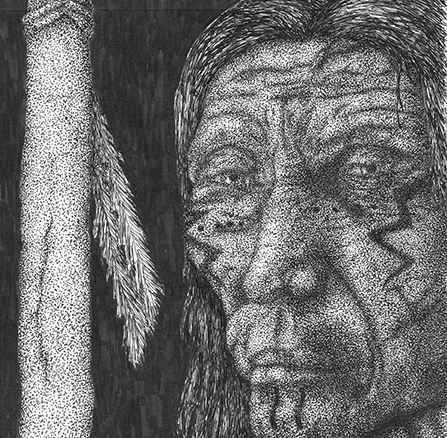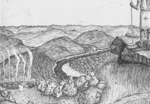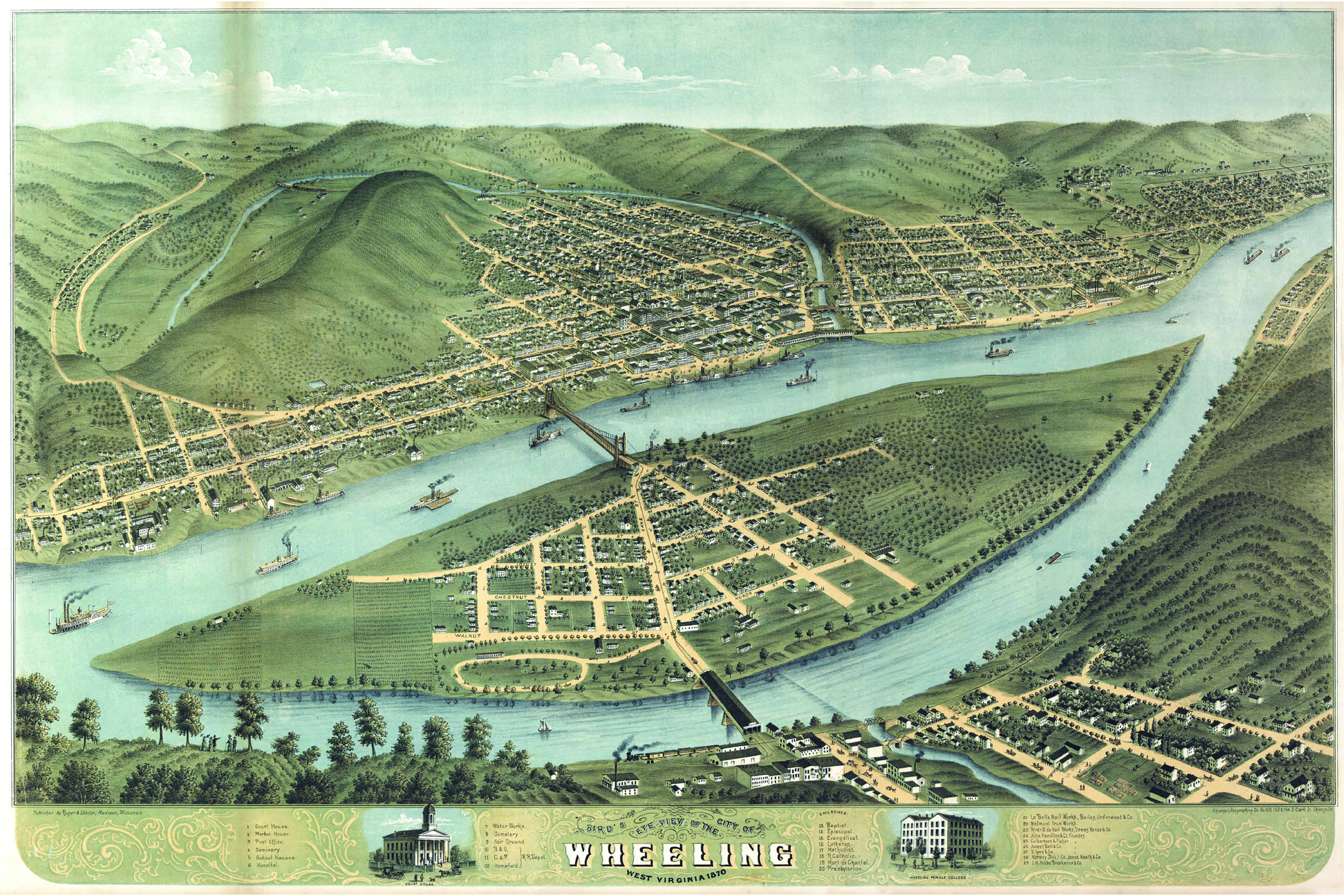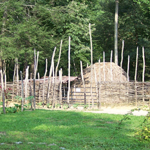Sneak Peaks
He wavered a bit, as if waking from a dream, casting odd shadows in the smoke that had been disturbed by the sudden movement. The weariness was back, his voice that had briefly sounded youthful and vibrant became hushed and strained. “That, my boy, was the beginning of changes that you must face as you become an itañi, a leader. Rodrigo’s people, the Spanish, have grown in number and I hear stories of other different foreigners in the east and north. Your initiation into manhood, as it always has, comes at a price, a responsibility to your family, your mampi. Ekuni, one day, hopefully, you will become an itañi like me and will grow old and weary sharing the stories of our mampi with many young ones.” With that, a small ray of pinkish light shot through a crack in the opening of the ati. It blazed through the smoke and struck the right side of Manksii’s face illuminating one of his glassy and greying eyes. (p. 15)
Though her face seemed wearier, I recognized one of my mother’s sisters, Nistaqkai, who had been married outside the Okahok amai when I was barely able to talk. “Watemai, I didn’t know you were here. May I sit?” Around her campfire I waited out the short meeting my father was having with the elders of the mampi. Unlike Monytons, she had joined her Tomahittan husband’s family after marrying. Not long after arriving, her husband died in a raiding party in the east. Then her son fell in and died of a strange disease that took many children and elders. She believed that a Spanish trader had cursed the poor boy and everyone in the mampi. I sat quietly listening to her story as she stirred a pot of corn mush. (p. 46)
Ohateta and the elders inspected the scrawny beast as it stomped at the ground and ate a few exposed roots. It was heaped with a mountain of bags and boxes. I could see my father nodding in approval. As they spoke flakes of snow began falling around our mampi. I heard the delight of the children as they got distracted chasing the huge flakes. As I looked back to the party of men they were walking briskly towards the palisade. They left a column of dark footprints pressed into the snow which quickly filled and disappeared. (p. 92)
Almost on cue, a hail of arrows began to rain down on us. Three men beside me were grazed by the metal-tipped projectiles. Gun shots rang out from all sides. We must have been spotted as we approached. Our ambushers materialized out of the gunsmoke and fog running at us from all sides. I grabbed a warclub that had been dropped by one of the Waskiteng’s men. I dodged a large Mohawk man running straight for me by dropping to my knee, rolling under and tripping him. Before I could turn to knock him out with the club, I was pushed off my feet by one of his kinsmen. (p. 148)



